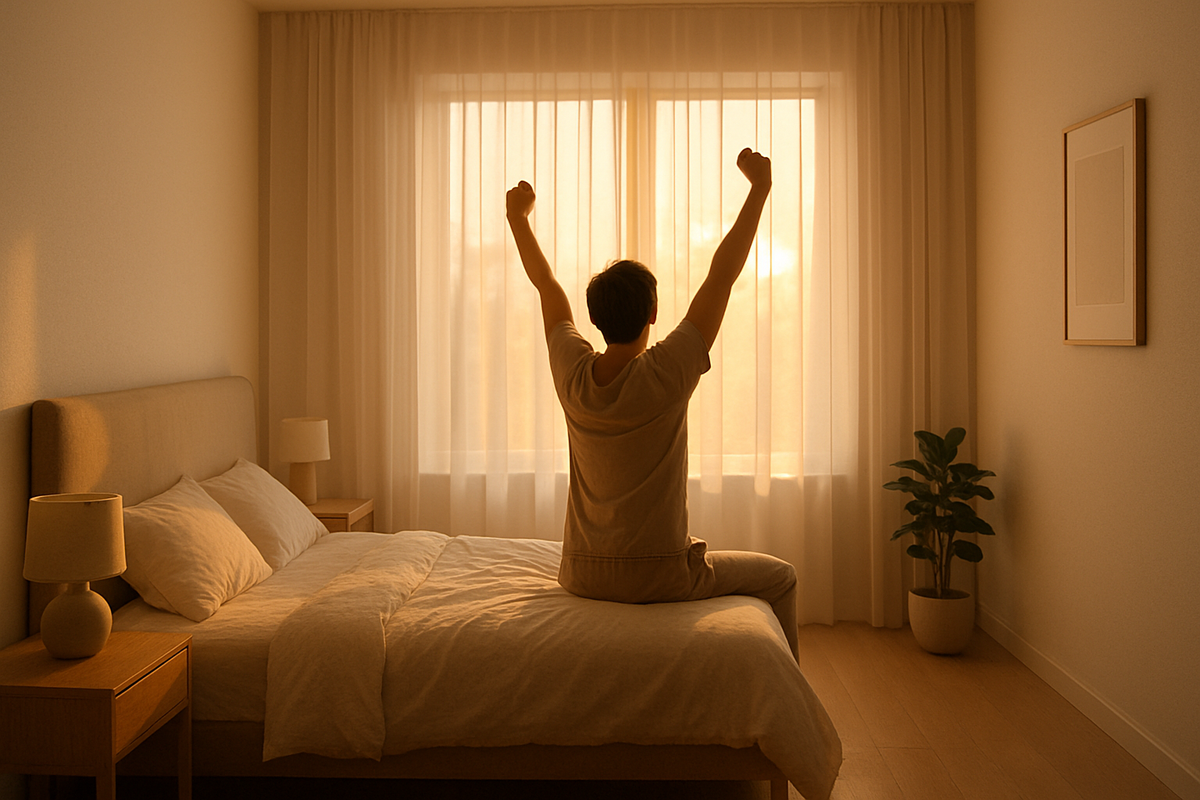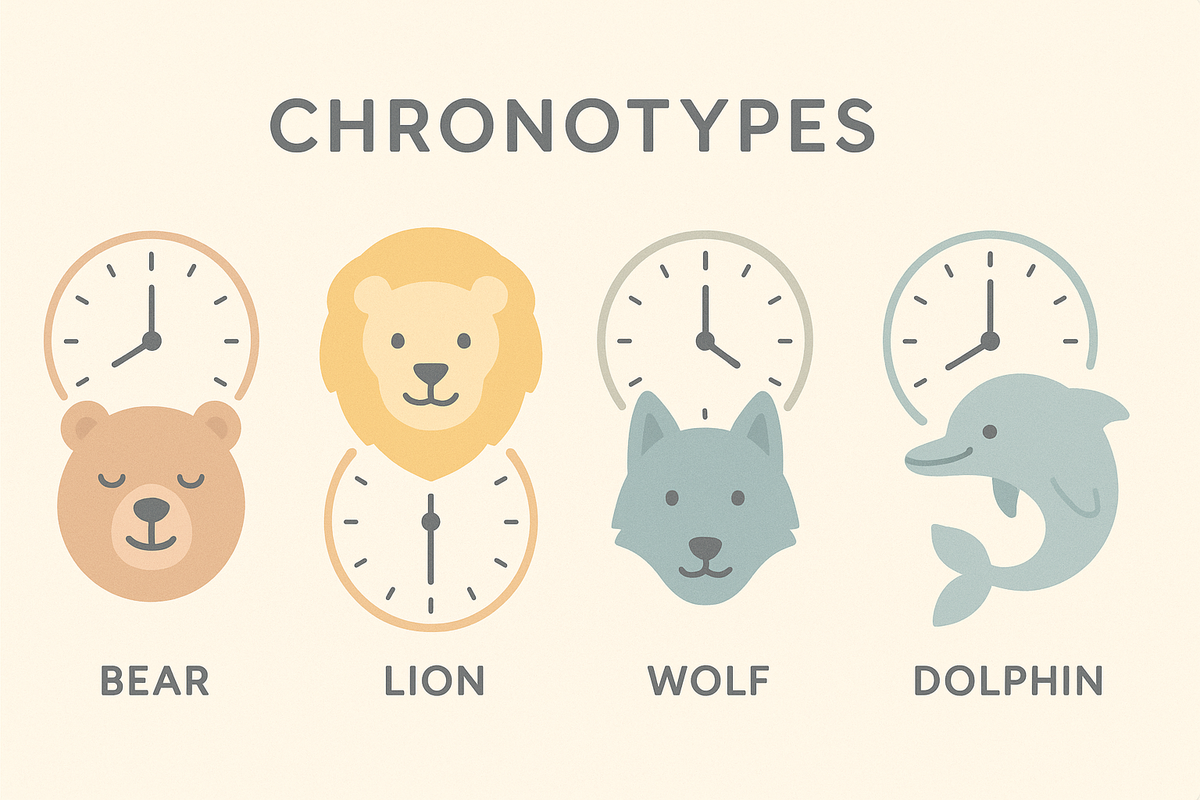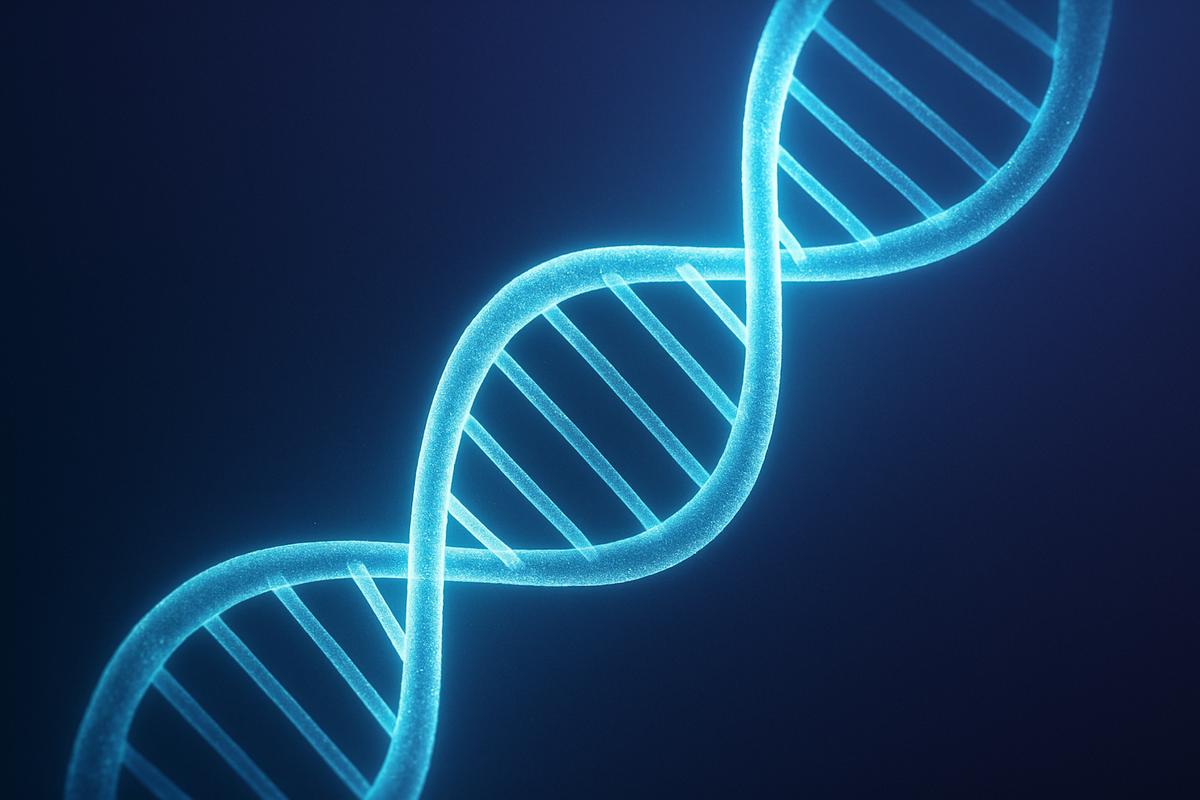How Your Chronotype Impacts Productivity
Understand your internal clock—and finally stop fighting it.

What is a Chronotype?
A chronotype is your body’s natural preference for when to sleep, wake, and be most productive. Think of it as your internal schedule—linked to your circadian rhythm and influenced by your genetics, hormones, and even light exposure.
Science note: In 2019, a Nature Communications study found 351 genetic factors associated with being a morning person.

The 4 Chronotypes Explained
Bear – The Daytime Doer
- About 50% of people
- Most alert: 9 AM – 3 PM
- Needs: consistent 7–8 hours of sleep
- Best for: Morning meetings, team collaboration, routine tasks
Lion – The Morning Charger
- About 15–20%
- Most alert: 6 AM – Noon
- Early to bed, early to rise
- Best for: Early decision-making, deep work at sunrise
Wolf – The Night Owl
- About 15–20%
- Most alert: 4 PM – 10 PM
- Late riser, creative thinker
- Best for: Creative work, solo projects, evening strategy
Dolphin – The Restless Perfectionist
- About 10%
- Most alert: Mid-morning or late evening bursts
- Light sleeper, anxious brain
- Best for: Flexible, task-switching schedules and sprints
Tip: If you don’t know your chronotype, think about when you naturally feel most energized without caffeine or alarms.

Why It Matters: Chronotypes and Productivity
Chronotypes don’t just affect when you wake—they change:
- Alertness and reaction time
- Mood and cognitive performance
- Risk of burnout when misaligned with work schedules
A Harvard study found that night owls forced into 9–5 jobs showed lower productivity, higher cortisol, and more mental fatigue.
Productivity Tips by Chronotype
Can You Change Your Chronotype?
Somewhat—but not completely. You can nudge it 1–2 hours with:
- Bright light exposure in the morning
- Melatonin supplements (short-term use)
- Consistent wake/sleep routines
But you can’t fully override your genetics. Instead of fighting it—work with your rhythm when possible.
Final Thoughts
- You feel more energized
- Your focus lasts longer
- Burnout becomes less likely
Your Next Step
Take our free quiz to discover your chronotype and get a personalized sleep plan — powered by AI.
